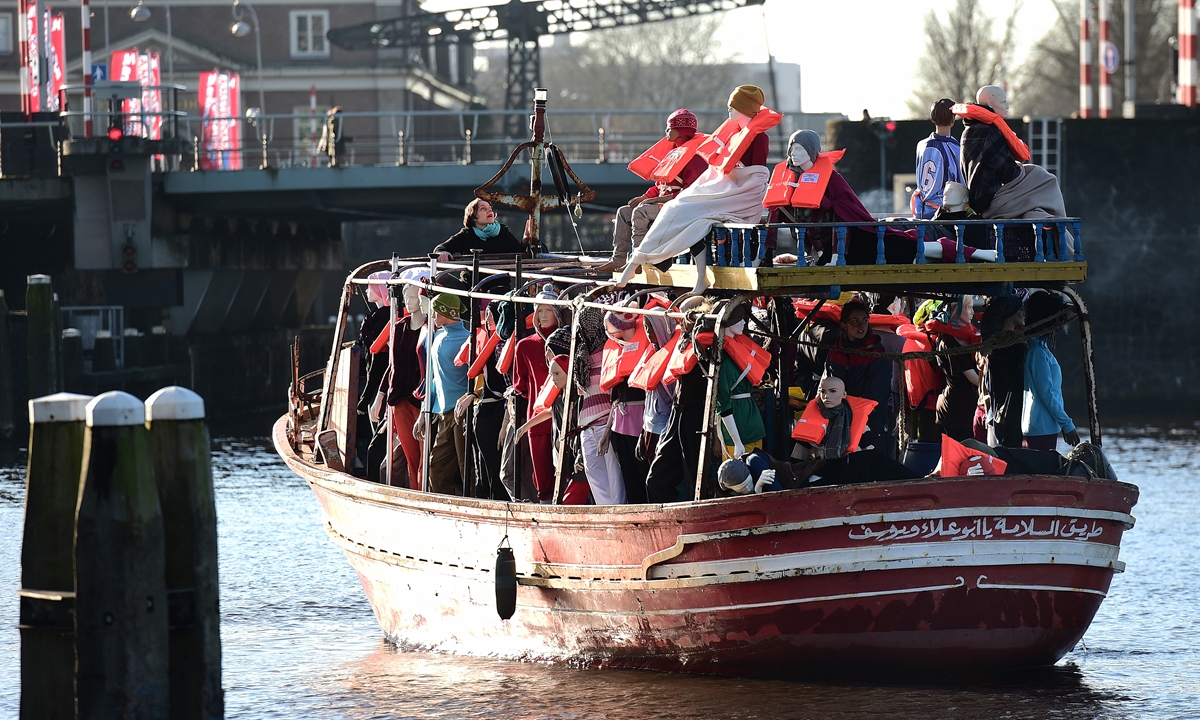
Amnesty International activists hold a protest against the ongoing migrant crisis with a boat filled with mannequins wearing life vests outside the Maritime Museum on January 25, 2016 in Amsterdam, the Netherlands during an informal meeting of EU Justice and Home Affairs ministers at the Maritime Museum. Photo: AFP
The Netherlands looks set Monday to finally embark on a path leading to a formal apology for its tainted 250-year history of slavery.
Prime Minister Mark Rutte is giving a speech on slavery in The Hague in what he has called a "meaningful moment" while Dutch ministers are traveling to seven former colonies in South America and the Caribbean for the event.
Sigrid Kaag, the Dutch finance minister and deputy prime minister, said on an official visit to Suriname last week that a "process" would begin leading up to "another incredibly important moment on July 1, 2023."
Descendants of Dutch slavery will then celebrate 150 years of liberation from slavery in an annual celebration called "Keti Koti" (Breaking the Chains) in Surinamese.
But the plan has caused controversy, with many groups and some of the affected countries criticizing the move as rushed, and saying the lack of consultation by the Netherlands smacked of a sense of still-colonial attitude.
As a result, Rutte has still not yet confirmed he will actually apologize, saying that details of his speech are "something that I would really like to keep under wraps until Monday."
Local media said "everything points to the fact that he will indeed apologize" for the Dutch role in a trade that caused centuries of untold misery, but it remained unsure.
The Dutch funded their "Golden Age" of empire and culture in the 16th and 17th centuries by shipping around 600,000 Africans as part of the slave trade, mostly to South America and the Caribbean.
At the height of its colonial empire, the United Provinces known today as the Netherlands possessed colonies like Suriname, the Caribbean island of Curacao, South Africa and Indonesia, where the Dutch East India Company was based in the 17th century.
AFP

